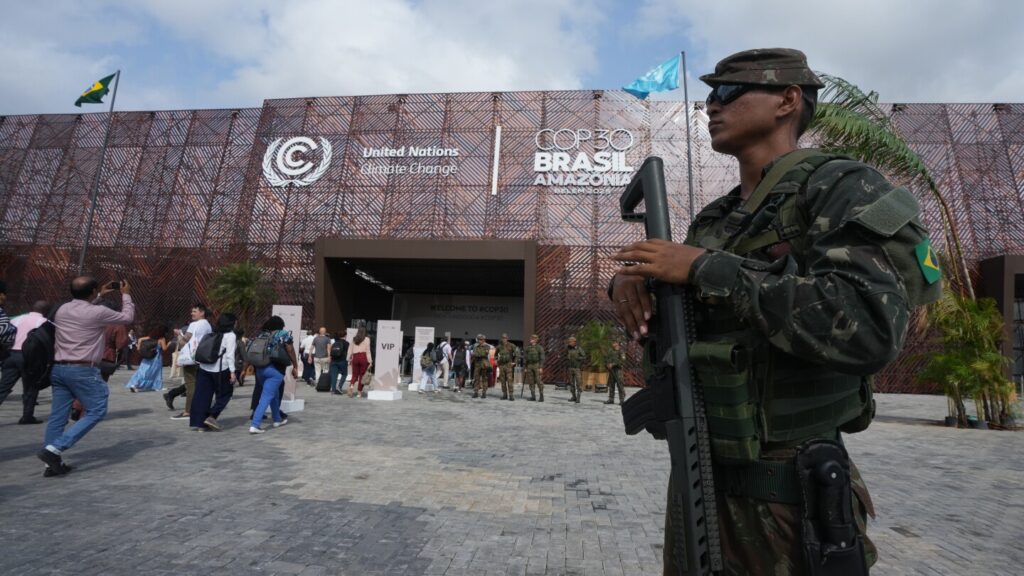BELEM, Brazil (AP) — At United Nations climate talks on Monday, professional negotiators will be stepping aside to make way for higher ranking government ministers to take charge and make the tougher and political decisions during the conference’s second and final week.
The climate negotiations, called COP30, taking place on edge of the Brazilian Amazon, resume after a rest day with foreign and other ministers arriving and scheduled to speak. They will then negotiate with far more power and leeway than those who have been doing the bargaining thus far.
“It brings a whole different dimension to the table,” said David Waskow, director of the international climate initiative at World Resources Institute.
Adding to the pressure, late Sunday the Brazilian presidency of the talks issued a five-page summary on how to proceed with sticky issues of telling nations to do more in their new emissions cutting plans, how trade disputes and barriers involving climate are handled and the need for financial aid to poor nations.
Attendees sit under a globe in a lobby at the side events pavilions at the COP30 U.N. Climate Summit, Tuesday, Nov. 11, 2025, in Belem, Brazil. (AP Photo/Fernando Llano)
It set out a buffet of options for negotiators to choose from or tweak in the contentious issues that were brought up by some nations even though they weren’t part of the original agenda or the COP30 presidency’s plans. They include options of creating new detailed “road maps” to get from a lofty goal to something done. It’s what’s already being used to solidify last year’s $300 billion annual goal for rich nations to provide climate financial aid to poor ones.
Several nations — especially small island nations for whom sea level rise is an existential threat — have asked that the talks to address the inadequacy of the emissions-cutting plans that have been submitted by 116 nations so far this year. Collectively, the plans come nowhere close to cutting heat-trapping gases enough to prevent 1.5 degrees Celsius (2.7 degrees Fahrenheit) of warming since the 1800s, which is the goal the world adopted in the 2015 Paris Agreement.
That issue may get combined with a call for a plan for phasing out fossil fuels — coal, oil and natural gas — which are the chief cause of climate change. That phase-out was agreed to after much debate at U.N. climate talks two years ago, but last year little happened on the issue. Brazilian President Luiz Inácio Lula da Silva earlier this month raised the issue and gave the call for a new road map impetus.
“The fight is on,” Andreas Sieber, associate policy director at the advocacy group 350.org said. “The presidency text outlines of a high-ambition COP30 outcome are finally visible: a pathway to close the decarbonization gap, anchored in a fossil-fuel phase-out road map and a credible climate-finance package.”
___
The Associated Press’ climate and environmental coverage receives financial support from multiple private foundations. AP is solely responsible for all content. Find AP’s standards for working with philanthropies, a list of supporters and funded coverage areas at AP.org.
___
This story was produced as part of the 2025 Climate Change Media Partnership, a journalism fellowship organized by Internews’ Earth Journalism Network and the Stanley Center for Peace and Security.

